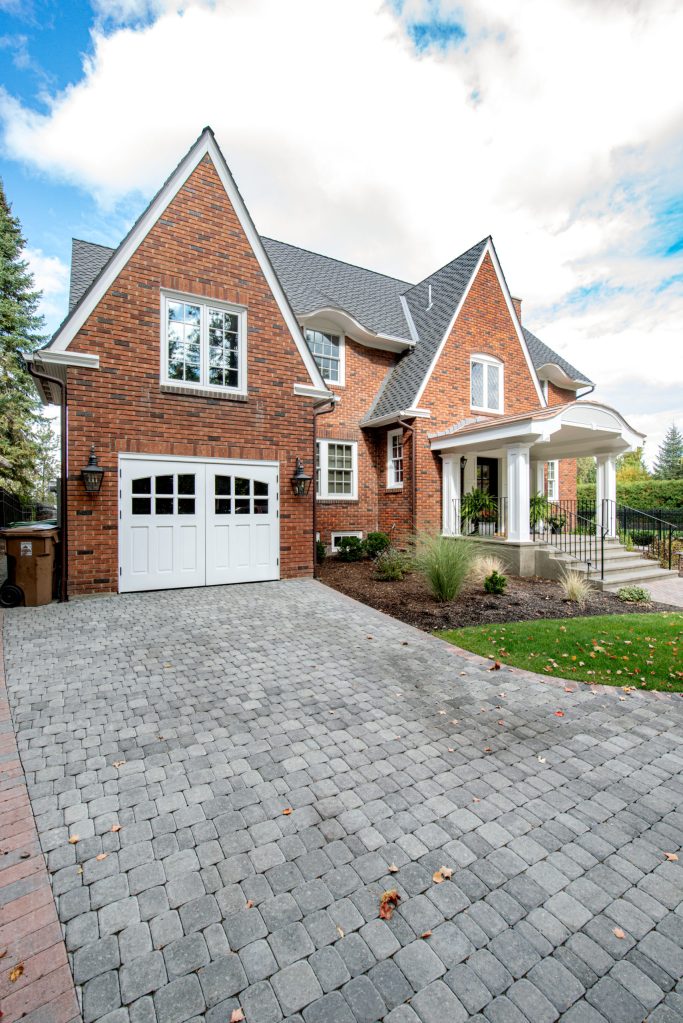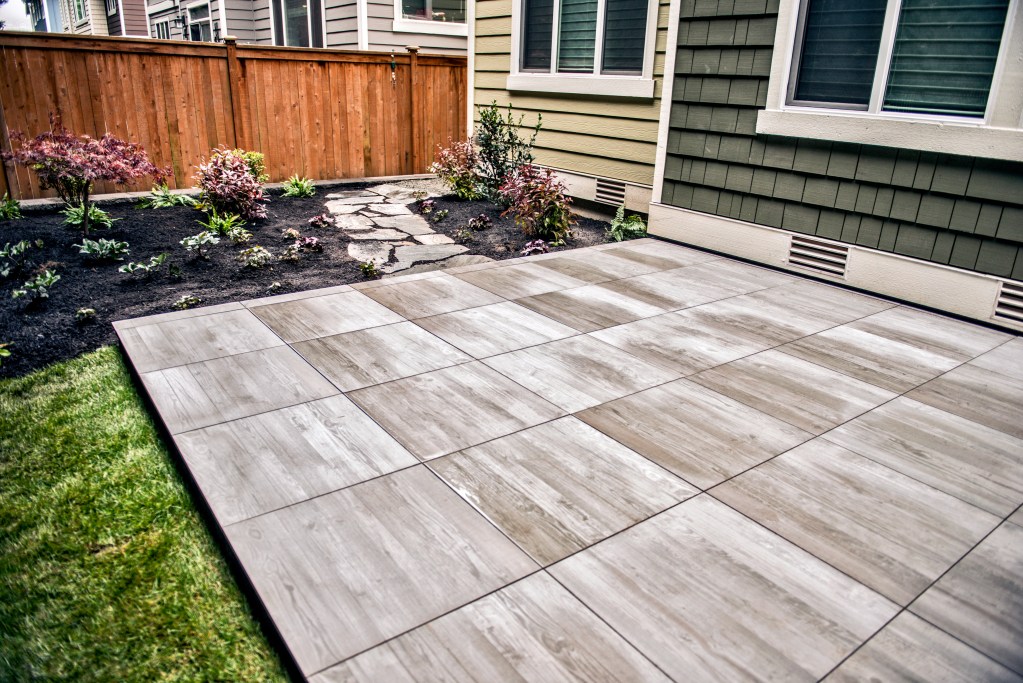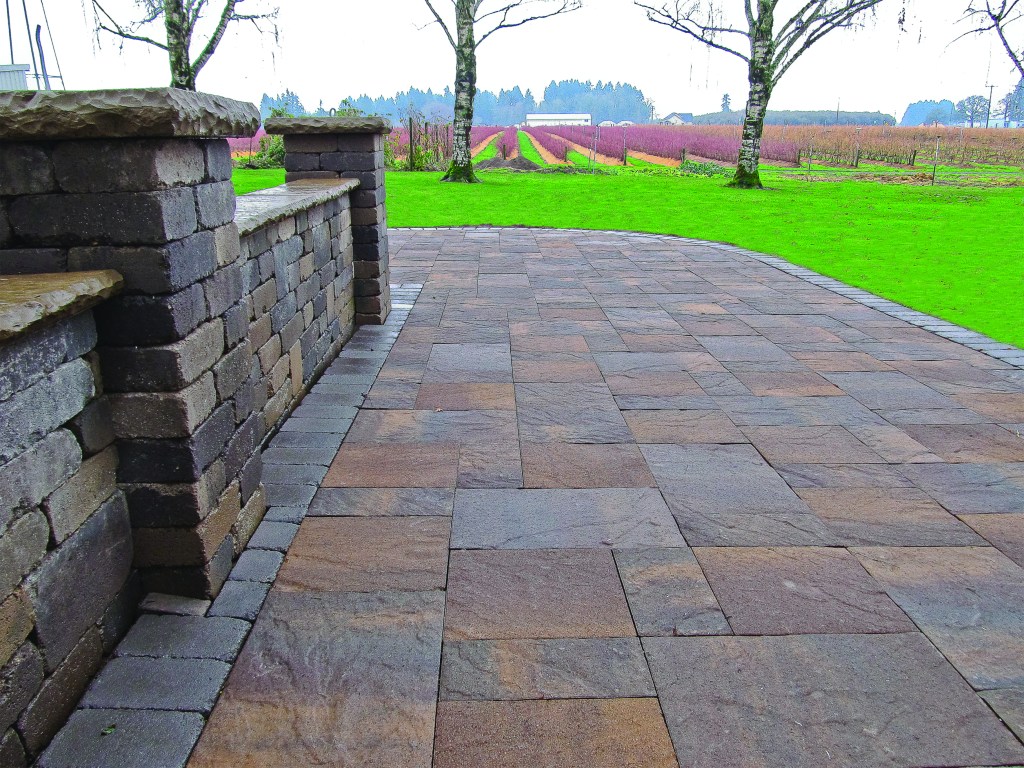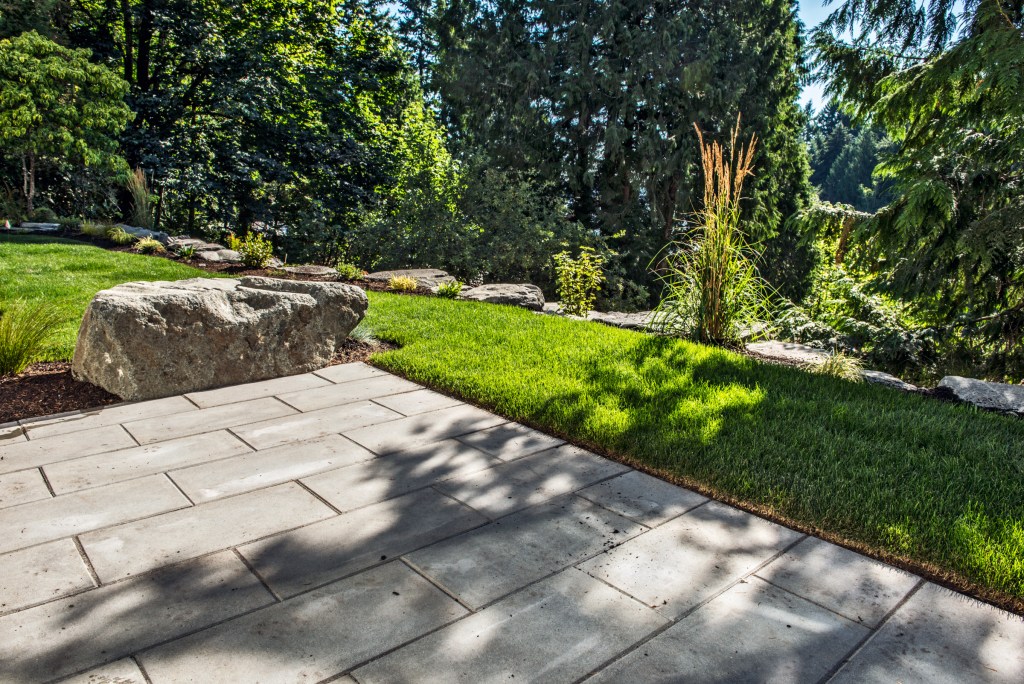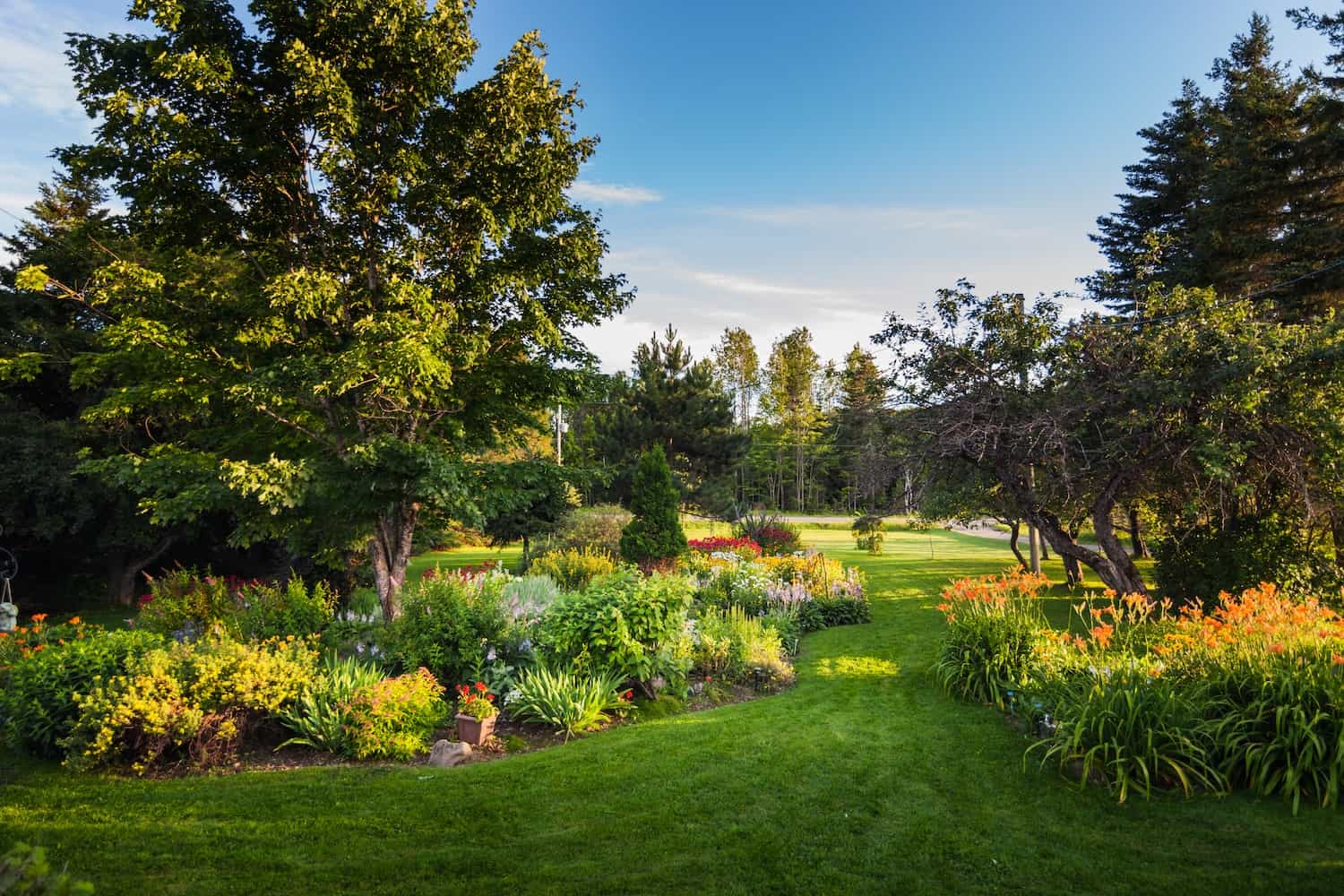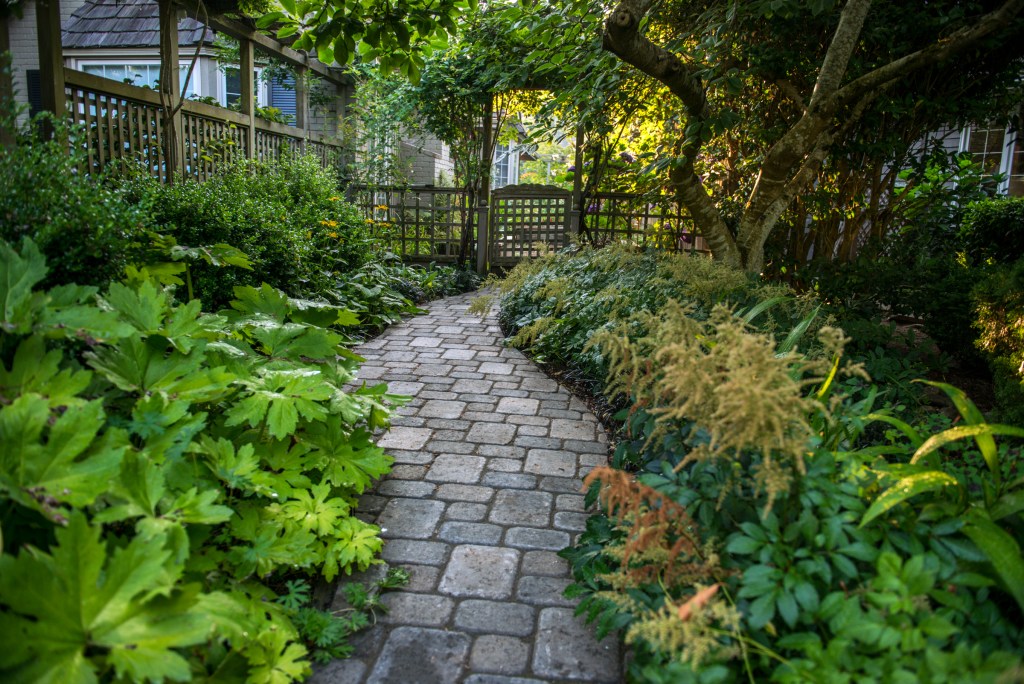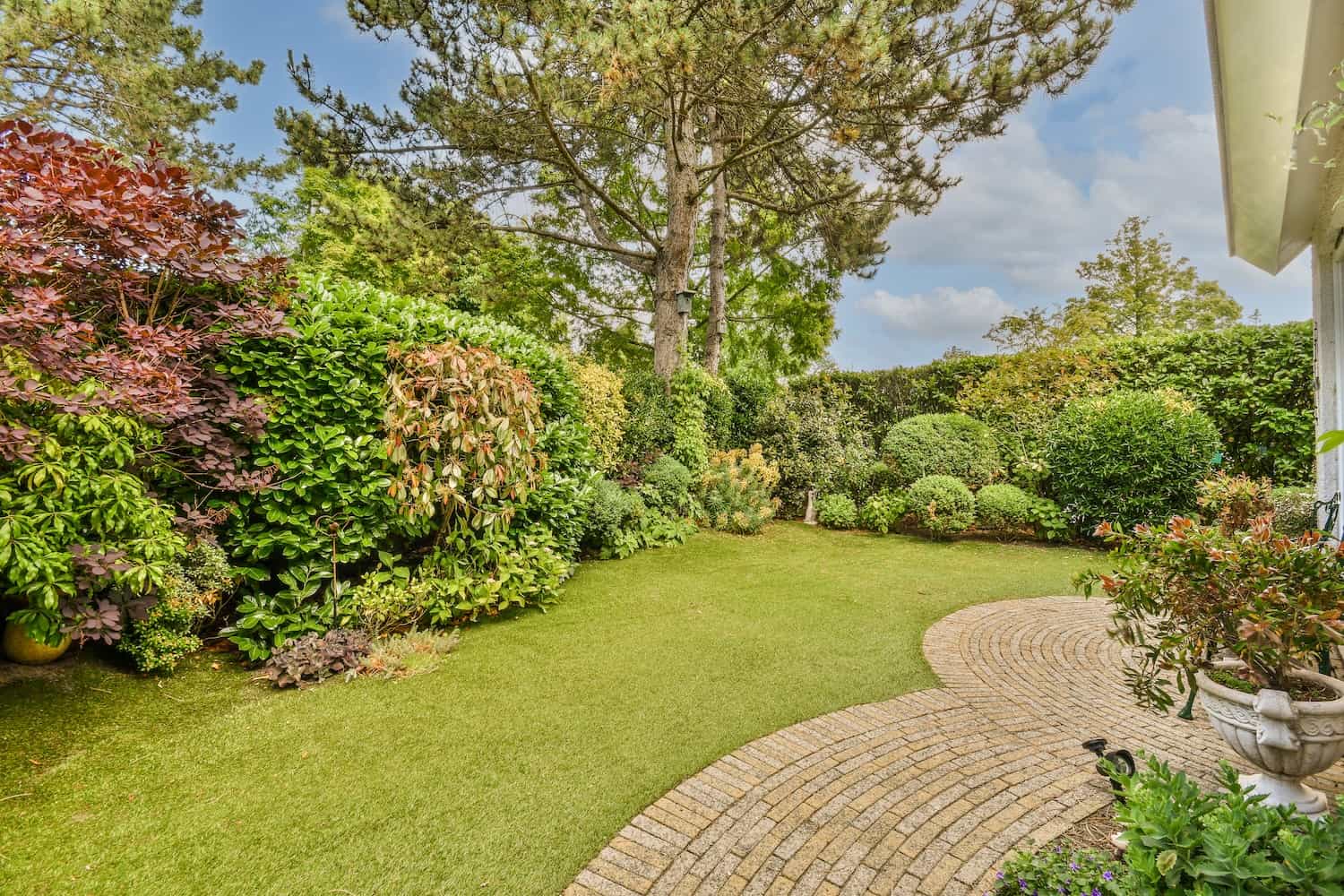Retaining walls are essential structures in landscaping and construction, used to hold back soil and create level areas on sloped terrain. The choice of material significantly impacts the wall’s durability, appearance, and functionality. Below is a comprehensive overview of common retaining wall materials, including how each is created, their qualities, and the pros and cons associated with each.

| Material | Creation Process | Qualities | Pros | Cons |
|---|---|---|---|---|
| Concrete Blocks Modular Concrete Blocks (CMUs) | Mix cement, aggregates, and water; pour into molds; cure. | Uniform size; strong. | Cost-effective; versatile; easy to install. | Plain look; may absorb moisture; may need reinforcement. |
| Precast Segmental Blocks | Interlocking design; decorative faces. | Interlocking; various finishes. | Easy assembly; aesthetic options. | More costly; height limitations; heavy. |
| Textured/Colored Blocks | Textured or colored during manufacturing. | Enhanced look; durable finish. | Customizable; low maintenance. | Color may fade; higher cost. |
| Natural Stone Fieldstone | Collected from fields; used in natural form. | Unique shapes; varied colors. | Aesthetic appeal; durable. | Complex installation; costly. |
| Boulders | Large natural rocks. | Massive; natural look. | Strong; low maintenance. | Requires machinery; high cost. |
| Cut Stone (Granite, Limestone) | Quarried and cut to size. | Precise; dense. | Elegant; long-lasting. | Expensive; labor-intensive. |
| Brick Traditional Clay Bricks | Clay shaped and kiln-fired. | Classic look; durable. | Versatile; color retention. | Higher cost; labor-intensive. |
| Veneer Bricks | Thin slices applied as façade. | Lightweight; aesthetic. | Cost-effective; easy to install. | Less durable; needs backing. |
| Timber Treated Lumber | Wood treated against rot. | Natural look; workable. | Cost-effective; easy to install. | Limited lifespan; maintenance. |
| Poured Concrete | Poured into forms; reinforced. | Monolithic; versatile finish. | Strong; durable. | Costly; skilled labor needed. |
| Accessories Base Material | Crushed stone; sand; aggregate. | Stability; drainage. | Essential foundation. | Additional cost; proper install. |
| Geotextile Fabric | Fabric layers between soil and base. | Prevents erosion. | Improves durability. | Extra step; extra cost. |
| Other Accessories | Adhesives, edging, drainage, sealants. | Enhance stability, appearance. | Extend lifespan; improve function. | Additional cost; maintenance. |

1. Concrete Blocks
Modular Concrete Blocks (CMUs)
Creation Process: Modular concrete blocks, also known as Concrete Masonry Units (CMUs), are made by mixing cement, aggregates (like sand and gravel), and water. This mixture is poured into molds and cured to form blocks of uniform size and shape.
Qualities:
- Uniformity: Consistent dimensions facilitate easy stacking.
- Strength: High compressive strength suitable for structural walls.
Pros:
- Cost-Effective: Generally less expensive than natural stone.
- Versatile: Can be used for various heights and designs.
- Easy Installation: Designed for interlocking, reducing the need for mortar.
Cons:
- Aesthetics: Plain appearance unless finished or faced.
- Water Absorption: Can absorb moisture if not properly sealed.
- Requires Reinforcement: May need steel rebar for added strength.
Precast Segmental Blocks
Creation Process: Similar to CMUs but specifically designed for retaining walls, these blocks have interlocking mechanisms and may include decorative faces.
Qualities:
- Interlocking Design: Built-in lips or grooves for stability.
- Variety of Finishes: Textured, colored, or patterned faces.
Pros:
- Easy Assembly: Modular design simplifies construction.
- Aesthetic Options: Mimic the look of natural stone or brick.
- No Mortar Needed: Dry-stacked for flexibility and drainage.
Cons:
- Cost: More expensive than standard CMUs.
- Limited Height: Best for walls under a certain height without engineering.
- Heaviness: Can be heavy to handle without equipment.
Textured/Colored Blocks
Creation Process: Concrete blocks are textured using molds or surface treatments and colored by adding pigments to the concrete mix or staining after curing.
Qualities:
- Enhanced Appearance: Simulates natural materials.
- Durable Finish: Resistant to weathering when properly treated.
Pros:
- Customizable Look: Wide range of colors and textures.
- Low Maintenance: Requires minimal upkeep.
- Consistent Quality: Manufactured under controlled conditions.
Cons:
- Color Fading: Pigments may fade over time due to UV exposure.
- Higher Cost: Additional processing increases price.
- Availability: May have longer lead times for specific styles.

2. Natural Stone
Fieldstone
Creation Process: Fieldstones are naturally occurring stones collected from fields or quarries, typically used in their natural, uncut form.
Qualities:
- Unique Shapes: Irregular sizes and shapes offer a rustic look.
- Varied Colors: Natural variation adds visual interest.
Pros:
- Aesthetic Appeal: Blends seamlessly with natural landscapes.
- Durability: Long-lasting when properly installed.
- Environmentally Friendly: Minimal processing required.
Cons:
- Installation Complexity: Requires skilled labor for fitting stones together.
- Cost: Labor-intensive installation can be expensive.
- Structural Limitations: Best for shorter walls unless engineered.
Boulders
Creation Process: Large, naturally occurring rocks selected for size and shape.
Qualities:
- Massive Weight: Provides excellent stability.
- Natural Appearance: Ideal for organic landscape designs.
Pros:
- Strength: Can retain large amounts of soil.
- Low Maintenance: Weather-resistant and durable.
- Aesthetic: Creates a dramatic visual impact.
Cons:
- Installation Challenges: Requires heavy machinery.
- Space Requirements: Not suitable for small areas.
- Cost: High transportation and installation costs.

Cut Stone (Granite, Limestone)
Creation Process: Stones are quarried and then cut into uniform shapes and sizes.
Qualities:
- Precision: Allows for tight joints and smooth faces.
- High Density: Offers excellent strength and durability.
Pros:
- Elegant Appearance: Provides a high-end, polished look.
- Longevity: Can last for generations.
- Low Maintenance: Resistant to weathering and erosion.
Cons:
- Expensive: High material and labor costs.
- Labor Intensive: Requires skilled masons.
- Limited Availability: May not be readily available in all regions.
3. Brick
Traditional Clay Bricks
Creation Process: Natural clay is shaped into bricks and fired in a kiln at high temperatures.
Qualities:
- Classic Look: Offers a timeless, traditional appearance.
- Durability: Good compressive strength.
Pros:
- Aesthetic Versatility: Complements various architectural styles.
- Color Retention: Colors remain stable over time.
- Fire Resistance: Non-combustible material.
Cons:
- Cost: More expensive than some other materials.
- Labor Intensive: Requires mortar and skilled installation.
- Not Ideal for High Walls: May need reinforcement for taller structures.
Veneer Bricks (Decorative Finish)
Creation Process: Thin slices of brick or manufactured brick-like materials applied as a façade over another structural wall.
Qualities:
- Lightweight: Adds minimal weight to the structure.
- Aesthetic Enhancement: Provides the look of solid brick walls.
Pros:
- Cost-Effective Alternative: Less expensive than full brick walls.
- Easy Installation: Can be attached to existing structures.
- Versatile: Suitable for both interior and exterior applications.
Cons:
- Less Durable: Not load-bearing.
- Potential for Moisture Issues: Requires proper installation to prevent water infiltration.
- Limited Structural Support: Needs a solid backing material.
4. Timber
Treated Lumber
Creation Process: Wood is treated with preservatives to resist rot, insects, and decay.
Qualities:
- Natural Appearance: Blends well with outdoor environments.
- Workability: Easy to cut and shape.
Pros:
- Cost-Effective: Generally less expensive initial cost.
- Easy to Install: Does not require specialized skills.
- Lightweight: Easier to handle than stone or concrete.
Cons:
- Limited Lifespan: Susceptible to rot over time, even when treated.
- Maintenance: May require staining or sealing.
- Environmental Concerns: Chemicals used in treatment can be harmful.
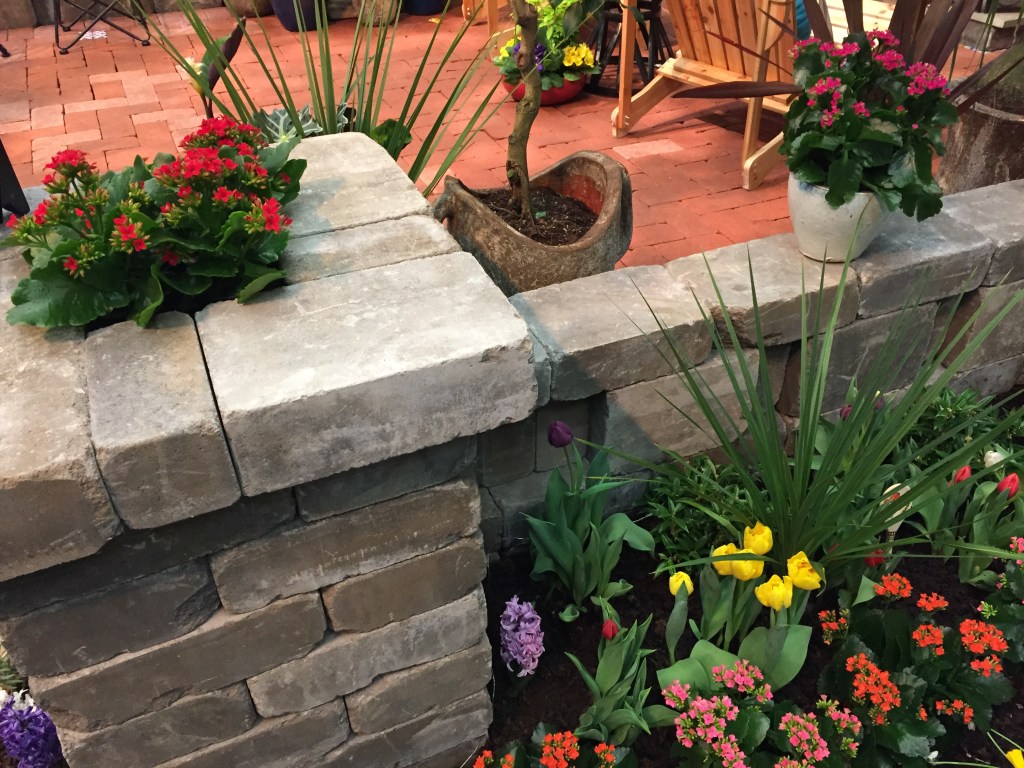
5. Poured Concrete
Creation Process: Concrete mix is poured into forms built on-site, and reinforced with steel rebar for added strength.
Qualities:
- Monolithic Structure: Provides seamless strength.
- Versatile Finishes: Can be smooth, textured, or stamped.
Pros:
- High Strength: Suitable for tall or heavily loaded walls.
- Durability: Long-lasting with proper construction.
- Design Flexibility: Can be molded into various shapes and sizes.
Cons:
- Costly: Higher material and labor costs.
- Requires Skilled Labor: Professional installation is necessary.
- Potential Cracking: May develop cracks due to settling or temperature changes.
Accessories and Components (For Both Pavers and Retaining Walls)
Base Material
- Crushed Stone or Gravel: Provides a stable foundation, promotes drainage.
- Sand: Used for leveling and as a bedding layer.
- Drainage Aggregate: Placed behind retaining walls to facilitate water movement.
Geotextile Fabric
- Erosion Prevention: Keeps base materials separate from subsoil.
- Weed Barrier: Reduces weed growth in paver joints.
Adhesives
- Landscape Block Adhesive: Secures blocks in retaining walls without mortar.
- Mortar or Concrete Mix: Used in traditional masonry construction.
Edging Materials
- Aluminum or Steel Edging: Provides a clean edge for pavers, prevents shifting.
- Plastic Edging Systems: Cost-effective and easy to install.
- Concrete Curbs: Durable option for heavy-duty applications.
Drainage Components
- Perforated Pipes: Directs water away from retaining walls.
- Drainage Channels: Manages surface water in paver installations.
- Weep Holes: Allows water to escape from behind retaining walls.
Sealants and Finishes
- Paver Sealers: Protects against stains, enhances color.
- Anti-Slip Coatings: Improves safety on walking surfaces.
By understanding the creation processes, qualities, and the pros and cons of each retaining wall material, you can choose the best option to meet the structural needs and aesthetic goals of your landscaping project.
Always consider factors like soil type, wall height, local climate, and budget when selecting materials. Consulting with a professional engineer or landscape architect can also provide valuable guidance tailored to your specific situation.





